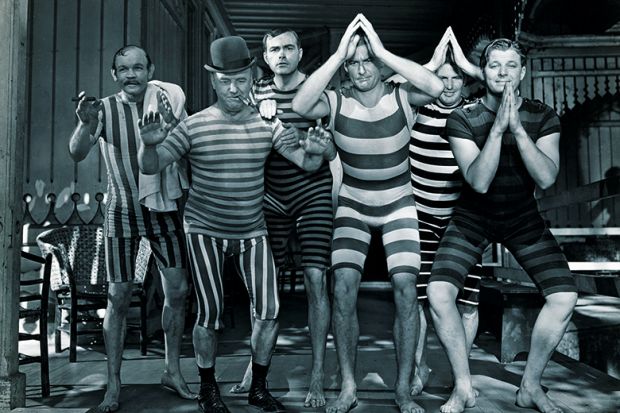Strategy awaydays have long been a feature of corporate life. Whether one regards the modernising and marketising of the university sector as a good or bad thing, awaydays are also now commonplace in our citadels of learning. So, if you’re asked to attend one, what should you expect and what is the etiquette?
Strategy, what strategy?
One of the defining characteristics of strategy is that it isn’t just about the operational or business as usual. Indeed, genuine strategy is handled relatively infrequently and often centres around decisions where there is simply no precedent to guide how we “normally” handle such situations. Brexit anyone?
If the agenda for your awayday is largely focused on familiar topics and rerunning the numbers for next year’s provision of the same old, same old, it isn’t really about strategy. If so, you have probably been invited to a regular management meeting masquerading as a strategy day.
If, however, it really is about strategy, you should expect the consequences of the decisions taken during the day to direct subsequent conversations, prioritise resource allocation and shape the medium- to long-term future of the organisation. If those sorts of discussion don’t pique your interest, you should probably decline the invitation.
Once yearly, nearly
Few organisations rewrite their strategy every year and those that do tend to be in crisis. Higher education tends to operate with planning horizons of around five years or so.
But it may indeed be that time in your university’s cycle where you are refreshing your strategy. If so, a one-off awayday is highly unlikely to provide enough time to deal with the analysis, decisions and consultation required to do such an important task justice. Try to figure out whether this is a one-off meeting or one in a series of such meetings. If it is one in a series of such meetings, ask yourself when a series of regular strategy meetings merges into everyday business?
Old friends, new friends
Delegates usually fall into one of three categories. First, there will be some familiar faces from your part of the university, from senior management or both. You should know these people and, ideally, they should know you. Your awayday experience is a chance to cement those relationships.
Second, there may be people from other parts of the university who you don’t know. Extending your network through the awayday is a good idea and so is learning how the wider university operates by listening to people from this group.
It also is not unusual to invite consultants and guest speakers, ostensibly so that you can learn from best practice in the wider world. But industrial tourism is fraught with the difficulty of unrealistic comparisons; having the chief innovation officer from a tech giant telling you about their iris recognition system can seem a long way removed from your use of more old-school solutions.
Likewise, management consultants are supposed to impart wisdom, but academic audiences can be challenging, with a tendency to ask awkward questions and doubt the relevance of insights from other settings. Cut your visitors some slack. As a minimum, consider it an opportunity to undertake some peer observation of someone’s classroom management skills as your colleagues redefine the question and ignore the group work instructions.
Action stations
Good strategy days have a purpose. It is rare for that purpose to be delivered solely by the awayday itself. Instead, it is likely that agreements and actions will flow from the awayday back into your everyday organisational life. One type of outcome includes personal pledges to think, act, prioritise or behave differently.
If all around you, colleagues are picking up new items on their to-do list, you may look distinctly off-message if you don’t join in. But volunteer strategically – it is a strategy day after all. Think of things that play to your strengths, aspirations and experience but that might also offer you the chance to broaden your influence.
Being part of a genuinely shared commitment to change an organisation’s strategy is a rare privilege and will require you personally being willing to change what you do and how you do it. It is easy to recite the rhetoric of change but inevitably harder to do than to say. Take the plunge. Volunteer. Collaborate. You might even enjoy it.
Post-traumatic strategy disorder
For a few brief moments you have glimpsed a bold new world order, thought big thoughts and felt like you were shaping the future of your university. Then reality hits; your inbox overfloweth and the long list of things that you did not deal with while you were “away” now feel more time-pressured.
Nevertheless, making time to deal with strategic issues proactively is a healthy response. These issues don’t tend to go away and you’ll have less command of your own destiny if you don’t begin to address them now.
Robert MacIntosh is head of Heriot-Watt University’s School of Social Sciences, where he is also professor of strategic management.
POSTSCRIPT:
Print headline: Way to make hay on your first awayday
Register to continue
Why register?
- Registration is free and only takes a moment
- Once registered, you can read 3 articles a month
- Sign up for our newsletter
Subscribe
Or subscribe for unlimited access to:
- Unlimited access to news, views, insights & reviews
- Digital editions
- Digital access to THE’s university and college rankings analysis
Already registered or a current subscriber? Login








